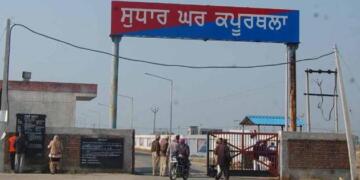India has expressed strong opposition to the Asian Development Bank (ADB) extending financial assistance to Pakistan, raising concerns about the potential misuse of international resources and the implications for regional stability.
This comes as ADB approved an $800 million financial support package for Pakistan, moving forward despite India’s strong opposition rooted in concerns over Islamabad’s alleged involvement in terror financing and misuse of international aid. The development follows closely on the heels of Pakistan securing a $1 billion package from the International Monetary Fund (IMF), aimed at stabilizing its struggling economy.
At a recent ADB board meeting, Indian representatives voiced serious reservations over Pakistan’s eligibility for continued financial support, especially through instruments like Policy-Based Loans (PBLs) that offer fungible financing. India cautioned that such unrestricted funding could be diverted toward increasing military expenditure, rather than being used for much-needed development and economic reforms.
India presented data showing a sharp decline in Pakistan’s tax-to-GDP ratio, which fell from 13.0% in FY2018 to just 9.2% in FY2023, well below the Asia-Pacific average of 19%. In stark contrast, Pakistan’s defense spending has continued to rise during the same period, suggesting, according to India, that external funding may be indirectly supporting military priorities.
“The linkage between Pakistan’s increasing defense budget and its poor tax mobilization cannot be explained purely through domestic means,” India stated, warning that ADB resources could be misallocated without strict safeguards.
India urged the ADB to ensure that its financing is ring-fenced, meaning that resources must be clearly directed toward defined development objectives, with tight oversight and accountability mechanisms in place to prevent diversion.
New Delhi also raised broader concerns about Pakistan’s governance and economic track record, pointing out that despite multiple financial packages from institutions like the ADB and IMF, Pakistan has repeatedly returned for bailouts, most recently applying for its 24th program with the IMF. India argued that this reflects structural weaknesses in both the design and monitoring of these support programs, as well as their ineffective implementation by Pakistani authorities.
A significant part of the problem, according to India, lies in the deep involvement of Pakistan’s military in the country’s economic affairs. Even under civilian rule, the Pakistan Army is said to exert strong influence over policy decisions and currently leads the Special Investment Facilitation Council, blurring the lines between military and civilian governance. India believes this entrenched military role poses risks of policy instability and reversal of reforms, undermining the success of any externally funded development efforts.
Additionally, India drew attention to Pakistan’s poor track record on counter-terrorism efforts, particularly in implementing key Financial Action Task Force (FATF) action items. It cited a lack of meaningful progress in the investigation and prosecution of leaders of UN-designated terrorist groups, as well as limited action in freezing and confiscating criminal assets. India warned that Pakistan’s support for cross-border terrorism continues to threaten regional peace and elevates macroeconomic and security risks for the ADB as a lender.
Highlighting the long-term credit risks, India emphasized that Pakistan’s economic fragility — characterized by a high debt-to-GDP ratio and a low sovereign credit rating — could undermine the financial health of the ADB itself. With Pakistan increasingly reliant on external loans to stay afloat, India argued that such dependency erodes domestic policy ownership and perpetuates a cycle of unsustainable borrowing.
In conclusion, India called on the ADB to exercise greater vigilance and tighter monitoring of any policy support extended to Pakistan. It reiterated that unless concrete safeguards and reform conditions are implemented, ADB resources risk being wasted, with limited developmental impact and potential reputational and financial damage to the bank.























